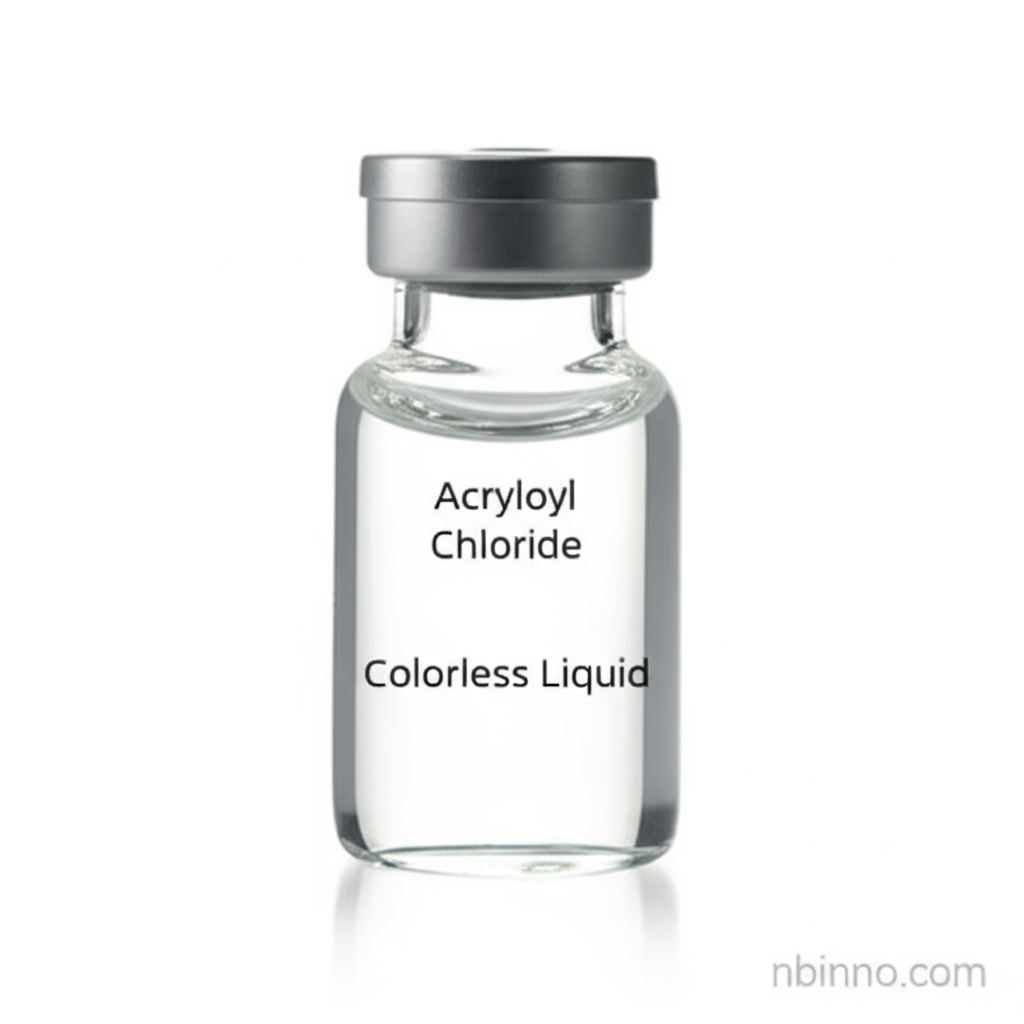Acryloyl Chloride: Properties, Industrial Applications, and Safety Handling
Essential chemical intermediate with diverse industrial uses, demanding rigorous safety protocols.
Get a Quote & SampleProduct Core Value

Acryloyl Chloride
Acryloyl chloride is a vital organic compound serving as a foundational building block in the synthesis of advanced materials across multiple sectors. Its unique reactivity makes it indispensable for creating complex molecules.
- Exploring the synthesis route of acryloyl chloride is crucial for understanding its industrial production. This chemical is key in creating polymers.
- Acryloyl chloride industrial uses are extensive, ranging from polymer production to specialized synthesis. Discover its application in various sectors.
- Understanding acryloyl chloride safety precautions is paramount for all handlers. Ensuring safe handling of this reactive chemical is essential.
- Acryloyl chloride properties dictate its behavior in chemical reactions. Learn about its physical and chemical characteristics.
Benefits of Using Acryloyl Chloride
Versatile Chemical Intermediate
As a primary chemical intermediate for polymers, acryloyl chloride enables the creation of materials with tailored properties for diverse applications.
Enables Complex Synthesis
The use of acryloyl chloride in pharmaceutical synthesis allows for the efficient construction of complex active pharmaceutical ingredients.
Supports Agrochemical Innovation
Its role in agrochemical production helps in developing advanced pesticides and herbicides, contributing to agricultural productivity.
Key Applications
Polymer Production
Acryloyl chloride is instrumental in producing acrylic polymers, which are widely used in adhesives, coatings, and textiles, showcasing its importance in material science.
Pharmaceutical Synthesis
It serves as a critical intermediate in the manufacturing of various pharmaceuticals, contributing to advancements in healthcare and medicine.
Agrochemical Manufacturing
Acryloyl chloride is utilized in the production of pesticides and herbicides, supporting the agricultural sector's need for crop protection solutions.
Textile and Paper Industry
Its application extends to textile finishing agents and paper coatings, enhancing the performance and appearance of everyday products.
